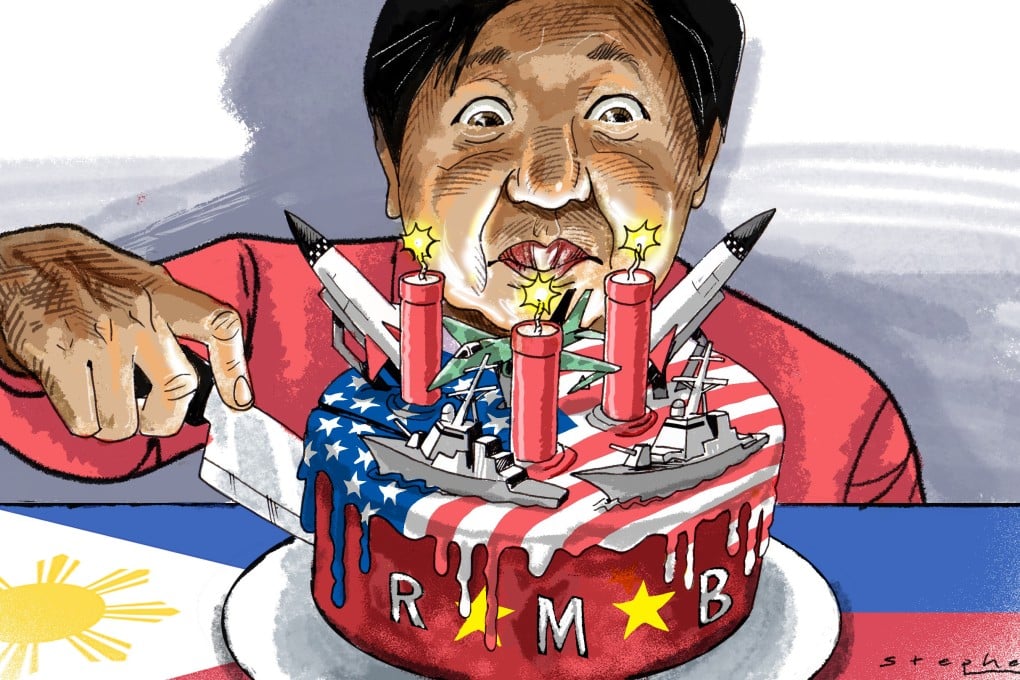Opinion | In courting both the US and China, the Philippines is trying to have its cake and eat it
- Philippine President Ferdinand Marcos Jnr is seeking greater security guarantees from the US, but they will come at the price of hosting US military assets
- Providing US forces such access is bound to go down badly with China, a vital trade partner with whom Marcos also wants stronger ties

Marcos wants both the security protection of the US and the maintenance of vital economic relations with China, the Philippines’ top trading partner with which bilateral trade reached nearly US$50 billion in 2019. China is also the Philippines’ leading source of foreign investment. Probably recognising – like his predecessor Rodrigo Duterte – that China will always be “there”, Marcos has pledged to foster closer relations with China.
Marcos was probably among this select group because the US needs the Philippines as much as, or even more than, the Philippines needs the US. China has modernised its military to the extent that there is fear it might overwhelm US forward-deployed forces in the South China Sea before reinforcements could arrive from extraregional bases.
